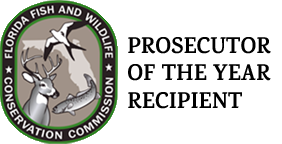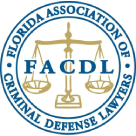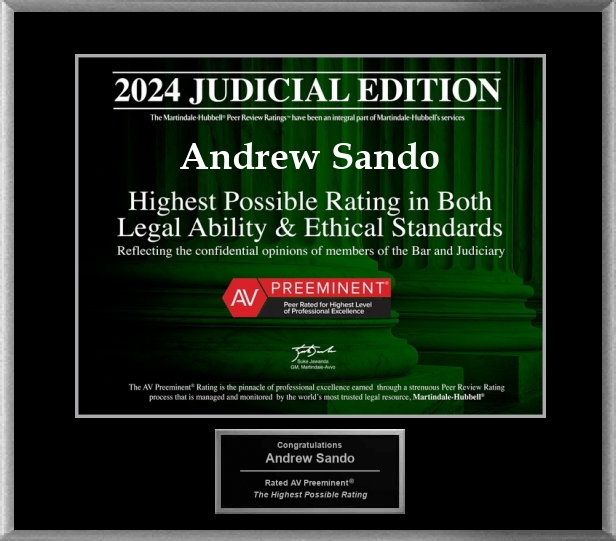Recreational Fishing in Florida
The abundant natural resources we enjoy in Florida include 3 million acres of lakes, ponds, and reservoirs that serve as freshwater fisheries. Around 12,000 miles of rivers, streams, and canals offer year-round fishing for recreational freshwater fishing enthusiasts.
On the east side, Florida enjoys the shoreline of the Atlantic Ocean providing access to thousands of saltwater fish species. Recreational saltwater fishing often coincides with boating and together, there are several Florida statutes, rules, and regulations that govern these activities.
The Florida Fish and Wildlife Conservation Commission (“FWC”) defines recreational fishing as any fishing activity that is for sport, pleasure, or personal use. There is no requirement to report recreational harvest to the state but selling recreational catch is illegal in Florida.
If you find yourself needing assistance with a recreational freshwater or saltwater fishing violation, you have come to the right place. Call Attorney Sando to see how we can help you.
Governing Authority for Fishing in Florida
The comprehensive set of recreational freshwater and saltwater fishing rules are governed by FWC rule 68A (Freshwater Fish and Wildlife), and FWC rule 68B (Marine Fisheries) put in place by FWC to enforce compliance over Florida’s fishing resources.
Be aware that jurisdictional boundaries can trigger additional regulations. For example, there are rules that govern actions after harvesting in the Bahamas and transporting catch back into Florida waters. As such, special statutes and rules in Florida allow for lesser privacy protections when voluntarily engaging in certain activities to allow law enforcement to properly enforce compliance. For example, the refusal or obstruction of any person freshwater fishing to permit a search or inspection by an authorized officer of the state can be its own violation. In other words, you may have already “consented” to a search or inspection by simply taking part in the voluntary act of fishing, and thus your refusal is not without penalty.
Reasons like the above is why it is best to hire an experienced attorney well-versed in this unique area of the law. Florida state waters extend 3 nautical miles from the shoreline on the Atlantic side and 9 nautical miles from the shoreline on the Gulf side. Generally, federal waters extend 200 nautical miles from where state waters end unless first reaching another country’s waters.
Reasons like the above are why it is best to hire Attorney Sando who is well experienced in defending fishing violations in the State of Florida. If you violate one of Florida’s recreational fishing laws or rules, you could receive a violation typically ranging from a noncriminal infraction to a misdemeanor offense, and in some cases, even a felony.
There are many things to consider before a fishing expedition to ensure you avoid tickets and violations.
Checklist to review before you fish
10 things to consider to avoid recreational fishing violations:
- Do you have the proper licensing? (To be kept on your person)
- Do you have the proper permits or stamps in addition to your license?
- Did you verify any applicable size limits?
- Are you aware of how to properly measure your catch?
- Did you verify the allowed method of taking?
- Do you have current boating registration and safety equipment?
- Did you verify applicable bag limits?
- Have you checked applicable season dates (ie: lobsters, crabs, trapping)
- Did you make sure anyone else you will be with has read this list?
- Did you visit the contact page to scan the QR code and quickly save Attorney Sando to your phone contacts just in case?
What do I do after receiving a fishing violation?
Generally, most recreational fishing violations result in noncriminal tickets. If you receive a recreational fishing ticket, call Sando Law, P.A. to see how we can help you. Take any noncriminal violation seriously as enhanced penalties can apply to future violations.
DON’T JUST PAY THE TICKET – CALL US FIRST!
Paying the civil penalty waives your right to a hearing before the county court to make any legal arguments or challenges in your case.
Attorney Sando may be able to have your charges dismissed, lessened, or negotiate a better resolution than the default penalties that may apply.
Other recreational fishing violations that can result in criminal convictions typically stem from FWC rule 68A or FWC rule 68B, areas of the law very familiar to Attorney Sando from his time as a former special prosecutor handling FWC cases.
As the recipient of FWC’s Prosecutor of the Year Award and the North Palm Coastal Conservation Association’s Prosecutor of the Year Award, Attorney Sando has experience and knowledge in this area of the law that is unmatched.
















